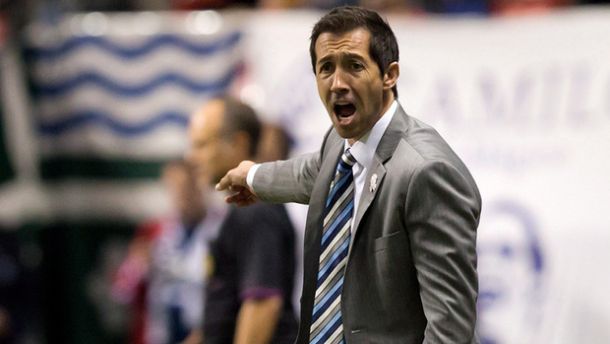The 2013 Major League Soccer season comes to a close in about six weeks. Much like every other year, there's been a lot of change in the race for the playoffs. Real Salt Lake, a team many expected to regress, have a two point lead at the top of the Western Conference, but are certain contenders for MLS Cup. The Seattle Sounders experienced a slow start, but thanks to the signing of Clint Dempsey and the reinvigoration of Eddie Johnson, are most likely destined to qualify for the postseason.
Over in the East, the Montreal Impact put the "Sophomore Slump" theory to rest and are joint-top of the conference with 45 points (as of September 12th). Despite all of the runs of form and futility, the usual suspects are near locks for the playoffs. However, one team that's in danger of missing out are the Vancouver Whitecaps.
Despite earning a 10-5-4 record in the regular season, along with being the second highest scoring side in MLS, the Whitecaps haven't had a lot of success as of late. Since July 20th at Los Angeles Galaxy, Vancouver's won just once in their last eight games (2-0 at home to San Jose). Crucial loses to LA, Colorado, and Dallas have led the Caps down a slippery slope away from playoff contention. To add insult to injury, they also suffered a heartbreaking defeat to the Impact in the Canadian Championship this past May.
They're in San Jose on Saturday, then have Montreal, Seattle, and Colorado away, along with Salt Lake, Portland, and Colorado at BC Place. It's now or never for the Whitecaps, because the man feeling the most pressure is coach Martin Rennie.
In Rennie's MLS debut in 2012, Vancouver went through a similar campaign to 2013. The only difference was the goal scoring. The Whitecaps scored 21 goals in 19 matches, but focused mainly on defending, an area they struggled in during their inaugural Major League Soccer season in 2011. Everything else is eerily similar to 2013.
Vancouver had an 8-6-5 record through 19 games, earning just five points fewer than their 2013 total up to that point. Following the sale of Davide Chiumiento, and the Eric Hassli/Sebastien Le Toux trades, that's when the poor form began. Three victories in the last 15 were just enough for the Caps to qualify for the playoffs, becoming the first Canadian club to do so.
Barry Robson's subsequent arrival combined with his antics didn't aid The Blue and White's case, plus Kenny Miller, who was also acquired during the summer transfer window, only scored twice. He, unlike Robson, survived the winter and stayed in Vancouver.
The fast, optimistic starts for Rennie are a common occurrence everywhere he's been, not just in Vancouver. The Carolina Railhawks in NASL were top of the league after the regular season in 2011. The only problem was the lack of consistency at the end of the campaign. They finished 17-3-8, with 54 points, but had just five wins in their last 14 matches. The Railhawks were 12-1-1 halfway through 2011, but, much like the Whitecaps in 2012, entered the playoffs on a bad run of form.
Carolina destroyed FC Edmonton 5-0 in the quarter-finals, but were eliminated in the semi-final to the Minnesota Stars 5-3 on penalties. They conceded less than a goal per game during the regular season, yet allowed four goals over the two legs to Minnesota. In fact, they were outplayed in the first leg and were lucky to only lose 1-0, the 4-3 win in the return match forced the shootout.
In 2010, Carolina were top of the NASL division during the temporary USL/NASL combined season. They were 13-8-9, but again, suffered through a dismal conclusion to their season. They tasted defeat just twice until Matchday 13, then the Railhawks went on to lose seven times, they were 8-2-7, but only went on a winning streak once; three straight in the final three games.
Carolina made it all the way to final, winning 4-0 in the quarter-final, then 2-1 in the semi, but had to rely on two late goals in the second leg to progress. They met their match in the Puerto Rico Islanders, who downed them 3-1 on aggregate.
Rennie has never won a playoff championship in his managerial career. He has the ability to turn around a team, like he did with Carolina and Vancouver, but can't maintain the consistency. It's not a matter of the difficulty of MLS, because he experienced the same trauma in NASL. It could be Rennie's tactical stubbornness, his optimistic post-match comments, when his team played poorly in reality.
Players like it when their coaches don't mouth off about them to the media, but they also grow tired of the same old routine. Making changes to a lineup in one of the biggest matches of the season, when the team hasn't won in September in their MLS history, is very intriguing.
Johnny Leveron, Nigel Reo-Coker, and Daigo Kobayashi (who's been constantly played out of position in 2013), were playing in roles they aren't used to versus Dallas. Rennie wanted to shake things up due to Vancouver's poor defensive performances since the return of Andy O'Brien from injury (coincidence?), but FC Dallas away is not the right time to do so.
Now it's a matter of the Whitecaps taking a chance on Rennie. Will he be able to snap these second half woes, or is his time up in Vancouver? President Bob Lenarduzzi is a very competitive man. He won't stand for his club struggling near the end of a campaign, hence why the last six matches are extremely important for the Whitecaps' future.










































